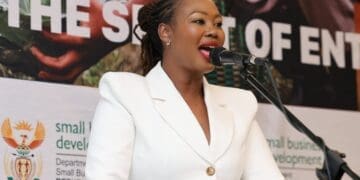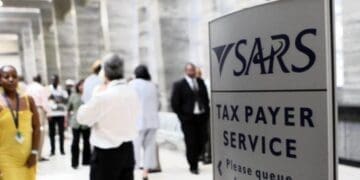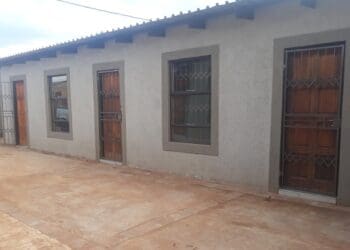By Noko Mashilo
South African micro, small, and medium enterprises (MSMEs) have less than a week to apply for assistance from the Asset Assist fund programme run by Small Enterprise Development and Finance Agency (Sedfa). The programme will support small businesses with machinery, equipment, working capital and raw materials up to a maximum value of R250,000.
However, for those wanting to meet the January 22 deadline, they are only eligible for a maximum of 30% of assets value which can be raw material or working capital. Applicants must know that working capital will not be cash but rent, electricity, and water. The programme excludes cooperatives, MSMEs with turnover of more than R3 million and those who were previously funded through this programme.
While it is aimed at boosting smaller businesses, many have raised concerns about the challenges they face when dealing with the Sedfa portal. They include requirements for six months of bank statements and existing clients for start-up applications. Vutivi News spoke to seasoned business coach Lerato Mathodlana, who owns The Platform ZA, over the concerns by the MSMEs. The business equips small and medium enterprises with the tools, knowledge, and strategies needed to thrive in South Africa’s competitive business landscape.
Regarding the Asset Assist funding requirement for existing clients, she explained that while it ensured market demand and mitigated funder risk, it created barriers for start-ups still building their client base. “This condition may inadvertently exclude early-stage businesses from funding opportunities,” said Mathodlana, whose ultimate goal was to see businesses succeeding and contributing meaningfully to the economy.
She told Vutivi News that start-ups without an established client base were left in a difficult position. “Providing alternative means to demonstrate potential demand, such as market research reports, letters of intent, or pilot project agreements, that would be more practical,” Mathodlana added. On the requirement that six months of bank statements must be supplied, she highlighted that start-ups that operating for less than this period struggled to meet this criterion. “They should be able to provide whatever banking history they have, along with proof of capital investment or transaction records,” the business coach said.
She recommended allowing shorter periods, such as three months of statements or projections, backed by credible financial models. “Start-ups in early stages often lack formal banking records, so accepting personal statements, financial projections, or investor commitments would bridge the gap,” she said. Mathodlana emphasised the need for clarity on exceptions or alternative documentation. “A guideline for exceptions would reduce confusion and increase accessibility,” she explained.
Business plans, cash flow projections, and investor commitment letters could substitute for bank statements to demonstrate financial preparedness. To strengthen applications, she advised entrepreneurs to provide a detailed business plan with clear financial projections, highlight partnerships or pre-orders to validate market demand, include testimonials or pilot project success, and ensure applications were well organised and error-free
For direct support, she suggested that Sedfa introduce a dedicated advisory service to assist start-ups facing these challenges. “Direct access to guidance could significantly ease the application process,” Mathodlana said. Black Entrepreneurs Alliance CEO and founder Refilwe Monageng echoed these concerns, stating that developers of such programmes failed to consider the realities of start-ups. “These businesses are in early stages, often still prototypes or proofs of concept, and may not yet have established clients,” said Monageng. Vutivi News reached Sefda for comment, however, by the time of publishing it had not replied.


























































